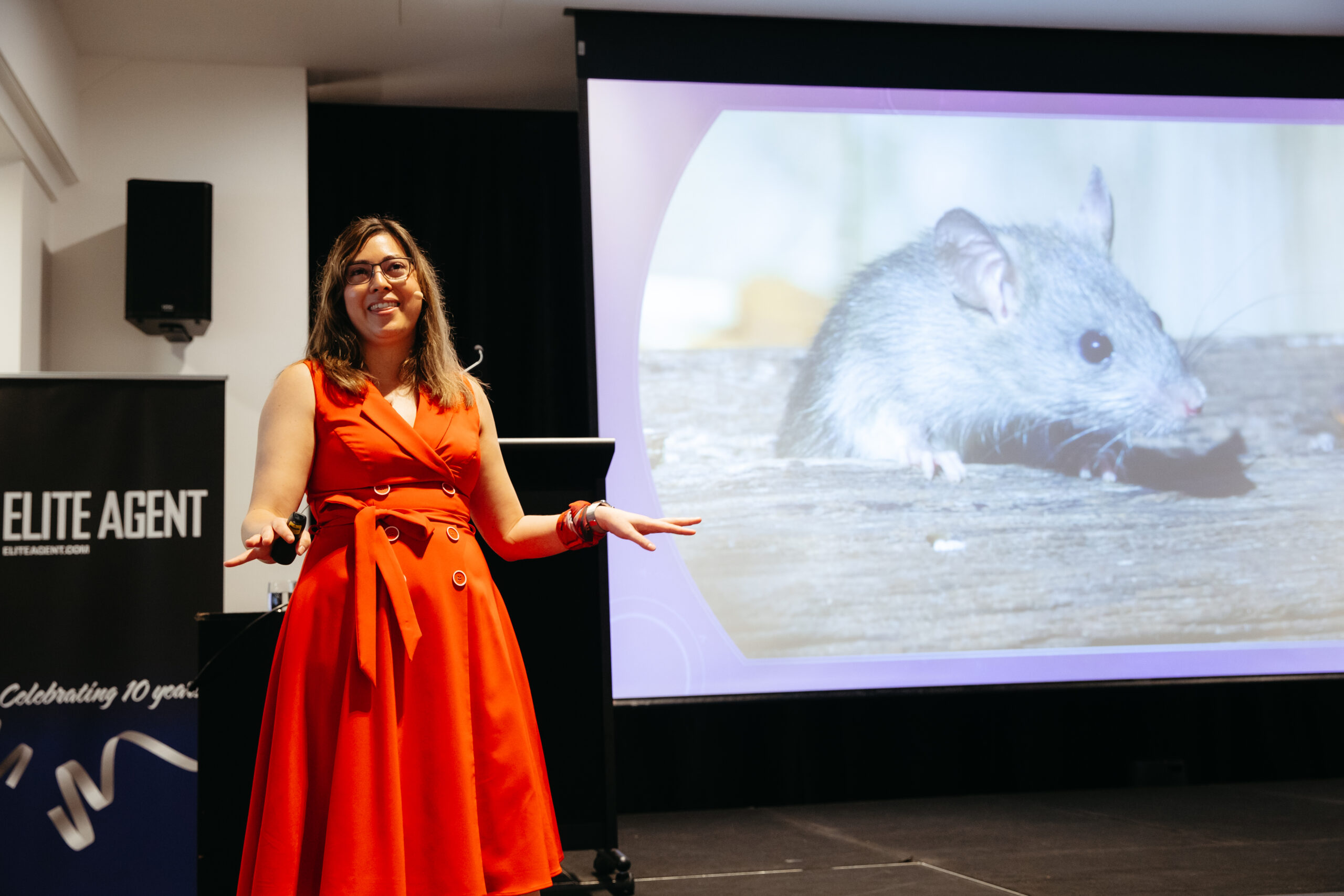“If you’ve ever wanted someone to make a bid at auction, to sign a contract … you’re in the business of behaviour change.”
Let that sink in.
When Dr. Emily Heath stood up to address a room full of agents and PM’s at Elite Retreat about the power of understanding behaviour change to influence others, she was met with blank faces – then she drove home this key point: “All of us in this room are in the business of behaviour change.”
Dr Heath, who has a PhD in Behavioural Neuroscience, has spent over a decade designing and delivering behaviour change programs for companies worldwide, and draws a clear connection between the science of decision-making and the real estate industry.
“Whether you’re encouraging a client to make an offer, convincing a buyer to increase their bid, or helping a seller feel confident in their asking price, you’re influencing behaviour,” she says. Her insights into how people make decisions offer valuable lessons for agents seeking to drive successful outcomes in a high-stakes, emotionally charged environment.
But Dr Heath’s career in understanding behaviour didn’t begin with people; it started with mice.
“I actually started my career, not working with people, but working with little creatures,” she recalls, sharing her early experience in a lab studying the neural processes behind learning and decision-making.
One mouse in particular, named “Duncy,” left a lasting impression. Duncy refused to press the lever that would give him food, despite Dr Heath’s best efforts.
“I would sit there, hour after hour, day after day, all the other mice pressing the levers, Duncy just sitting there,” she says. Thinking she could help, Dr Heath guided his paws to the lever herself, but Duncy didn’t make the connection. What she didn’t realise at the time was that Duncy had learned something.
“Duncy had learned, if I sit still for long enough, a magic hand is going to appear and seeds are going to come out.”
This lesson had a profound impact. “Every single thing that we do is training the people around us how to act. Even when we don’t mean to,” Dr Heath says, drawing a parallel to how leaders in real estate may unintentionally create dependency in their teams rather than fostering independent action.
“I’ve shared this story with CEOs, and inevitably people come up to me afterwards and say, I just realised that I’ve been pressing the levers for my team and training them to sit and do nothing.”
In real estate, Dr Heath argues, agents are constantly influencing behaviour, whether they realise it or not. But while most people believe they make decisions rationally, Dr Heath explains that emotions often play a far greater role.
“People don’t make rational decisions, they rationalise the decisions that they make,” she says.
This is particularly relevant in high-pressure environments like auctions, where research shows that weather conditions can influence buyer behaviour.
“On sunny days, people pay about 1 percent more on average for houses. On rainy days, they pay 5 percent less.”
Beyond emotions, trust plays a critical role in real estate transactions. “We don’t see things as they are, we see them as we are,” Dr Heath says, emphasising how buyers and sellers bring their personal experiences and emotions to the table.
In a field where trust is sometimes lacking, she believes this presents an opportunity for agents to differentiate themselves.
“Companies that are trusted outperform their competitors by 400 percent,” she says, demonstrating how trust can be a powerful competitive advantage.
“Develop expertise by paying attention to feedback, harness the power of emotion, and build trust by being transparent and authentic.”

